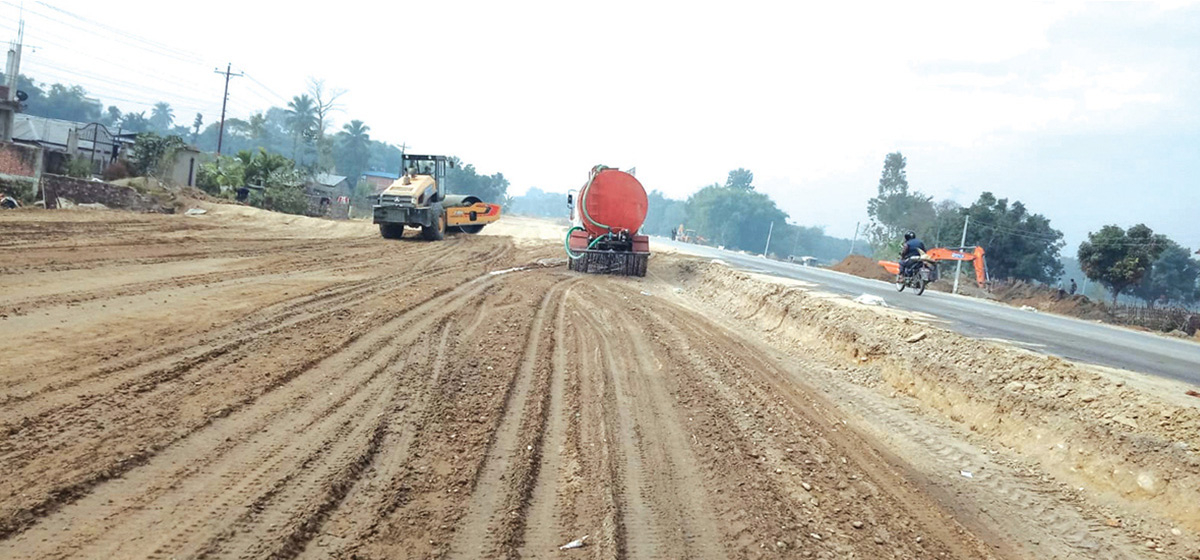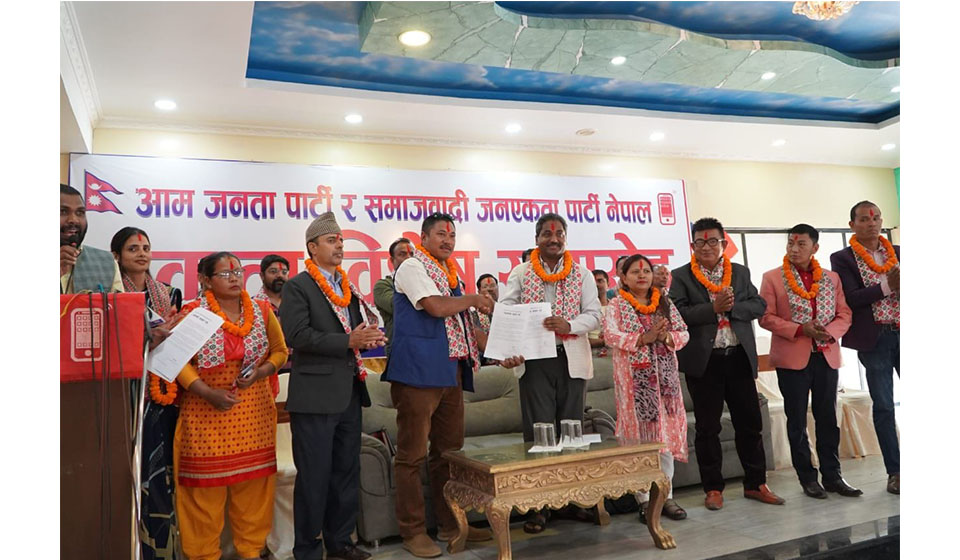
OR
Editorial
Tackling Project Construction Delays
Published On: January 19, 2024 07:25 AM NPT By: Republica | @RepublicaNepal

In May 2023, India set a world record by constructing a 100 km road as part of the Ghaziabad-Aligarh Expressway in just 100 hours. This road project spans various towns and cities in Uttar Pradesh, including Dadri, Gautam Buddh Nagar, Sikandrabad, Bulandshahr, and Khurja. India's road construction and expansion drive has gained momentum under the Modi government, achieving one record after another in recent years. In the fiscal year 2022-23 alone, India recorded 10,993 km of road construction. This success is attributed to the dedication and ingenuity of India's road infrastructure industry and the strong political will that drives bureaucracy to take real-time action. Contrastingly, across the border in Nepal, the situation is dire. It takes several years to complete even a road project spanning a few hundred kilometers, leading to insurmountable hassles, difficulties, and accidents claiming lives. The situation is so dire that political party leaders in the federal parliament are forced to take to the streets to demand the early completion of maintenance or construction works. Recently, top leaders of the Rastriya Swatantra Party (RSP) organized a march from Narayanghat to Butwal to exert pressure on the government and contractor company, resulting in increased construction momentum after the protest. The party now plans to use the same approach to push government bodies to complete works promptly.
While the RSP’s modus operandi may work to some extent, this does not provide the long-term solution to the problems associated with the delays of our development projects. It is time for concerned stakeholders to identify the root causes and address this perennial issue of delay once and for all. Experts argue that inadequate planning, weak monitoring, and local protests at project sites are major reasons for delays. They also point to changes in design, shortages of construction materials and required equipment and labor issues. Furthermore, factors such as a low number of contract bidders, unrealistic contract durations, lack of coordination among relevant government agencies and variations in cost and quantities during project execution phases contribute to delays. Climate change, inflation, natural calamities, frequent changes in government, strikes, holidays, and insufficient budget allocations are equally blamed as factors responsible for delays. However, in the context of Nepal, the rent-seeking culture of political leaders in power, the nexus between politicians and contractors, and bureaucratic obstacles are the most important causes of such delays.
The solution to this problem is simple: politicians in power must demonstrate a strong will to drive the entire state machinery toward achieving project goals within the stipulated time. Improving planning and monitoring, ensuring the availability of adequate raw materials, equipment, and manpower, and enhancing coordination among all government agencies involved could significantly address the problem. Government agencies must work towards ensuring realistic contract bidding and durations and eliminating political and bureaucratic hassles. The government should involve stakeholders in developing detailed project designs and ensure that criteria are not devised solely in favor of contractors close to those in power. If lessons cannot be learnt from our own failures, it is time we take some cues from neighboring India and avoid the perennial problem of project delays that negatively impact a large number of people.
You May Like This

Obstruction by locals delays construction of quake memorial park in Barpak
GORKHA, April 27: As April 25, 2016, marked two years of the deadly Gorkha earthquake, President Bidhya Devi Bhandari reached Barpak,... Read More...

Daniel Craig delays specter of retirement as James Bond
LONDON, August 16: Daniel Craig has delayed the specter of retirement as 007. ... Read More...

Lawmaker bristles at construction of substandard road
KAPILVASTU, July 17: Lawmaker Narsingh Chaudhary has said the road construction under Constituency Infrastructure Development Special Program (CIDSP) at various... Read More...
Just In
- Sunkoshi-Marin Diversion Project’s tunnel construction nears completion, breakthrough scheduled for May 8
- Govt tightens security arrangement for Third Investment Summit 2024
- Pesticide residue found in vegetables in Nepalgunj
- Aam Janata Party and Samajwadi Jana Ekata Party merge
- 1,600 participants confirmed for Nepal Investment Summit
- Ilam-2 by-elections held peacefully, vote count likely to start tonight
- NEA schedules five-day power cut across Kathmandu Valley for underground cable installation
- Hundreds of passengers including foreign tourists in distress as poor visibility halts flights to and from PRIA








-1200x560-wm_20240427144118.jpg)







Leave A Comment